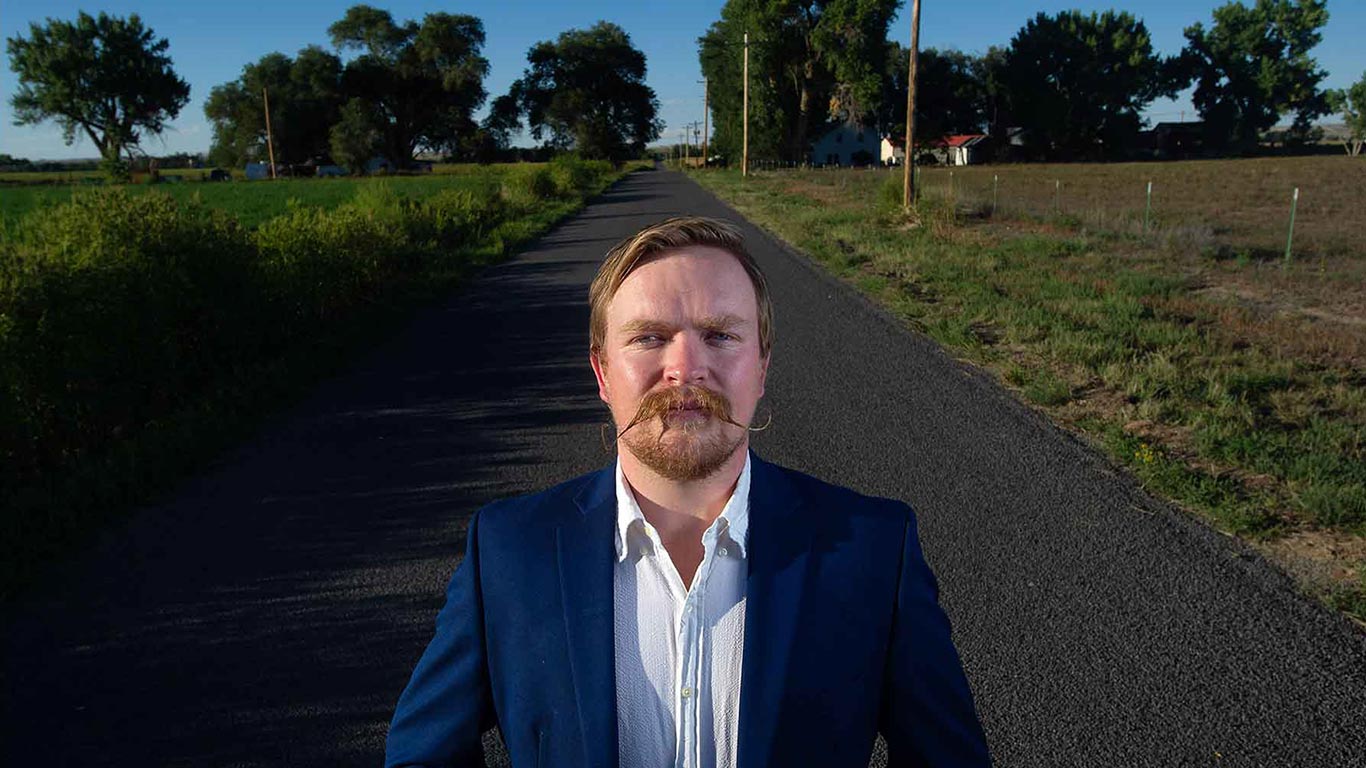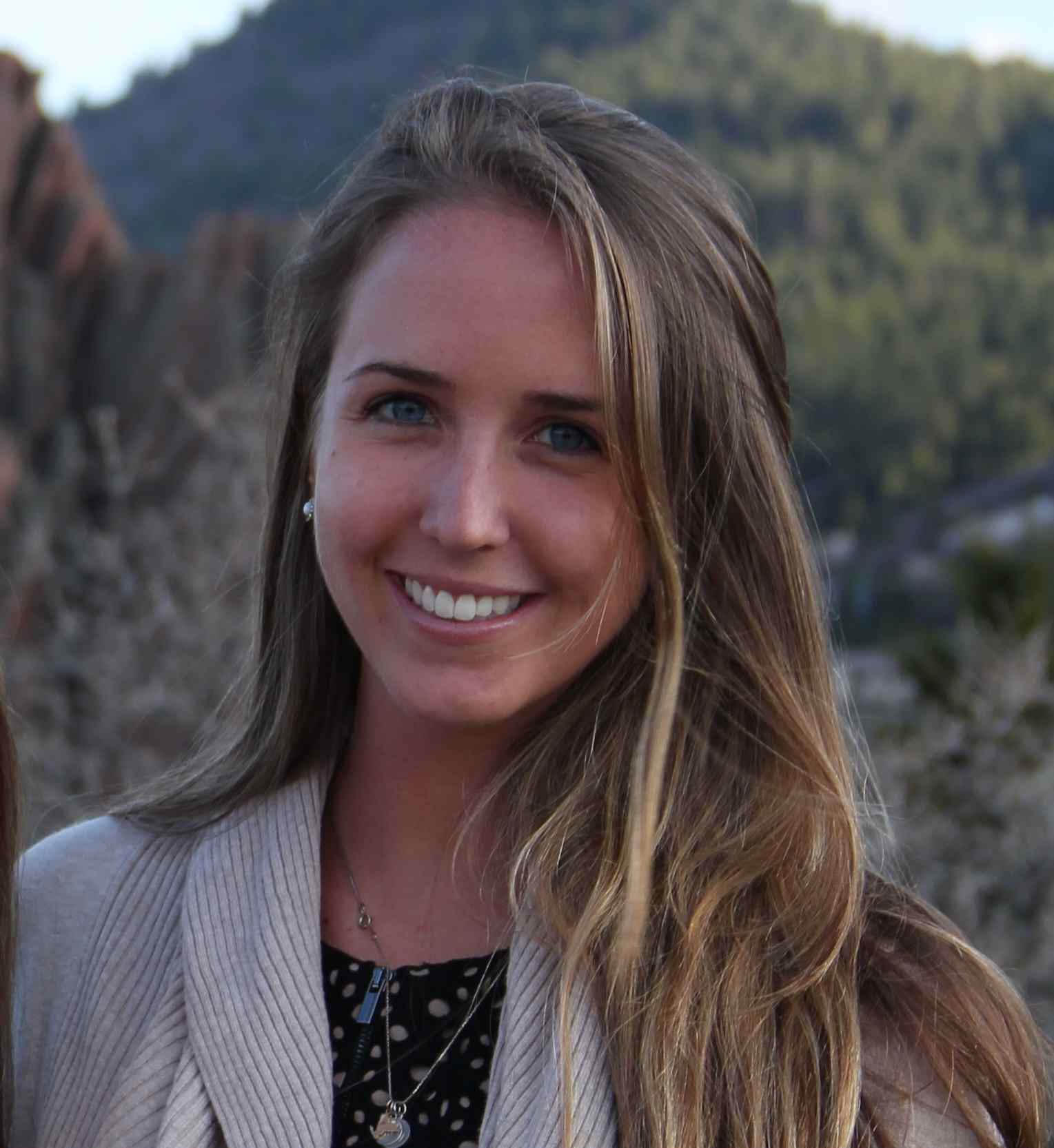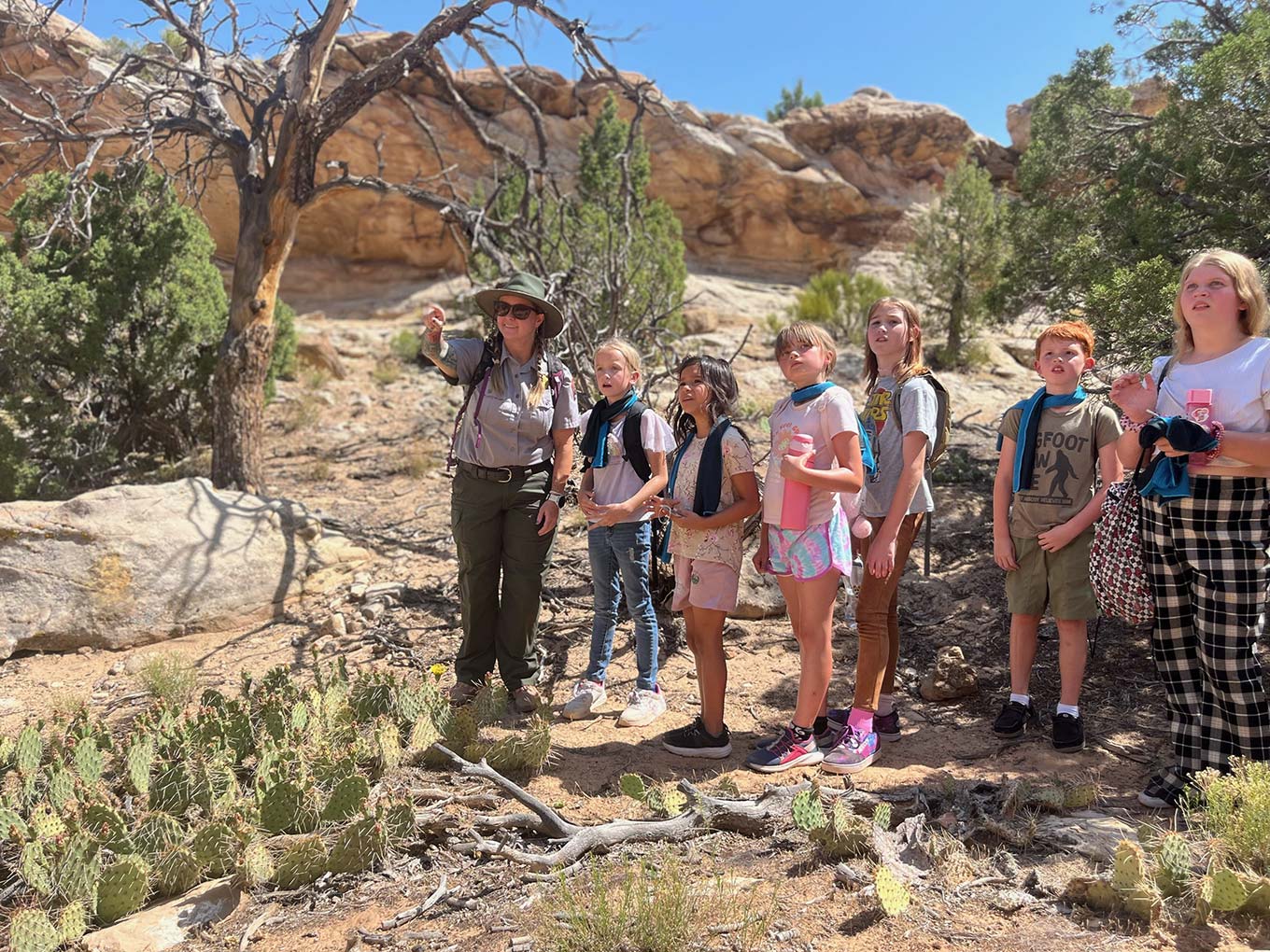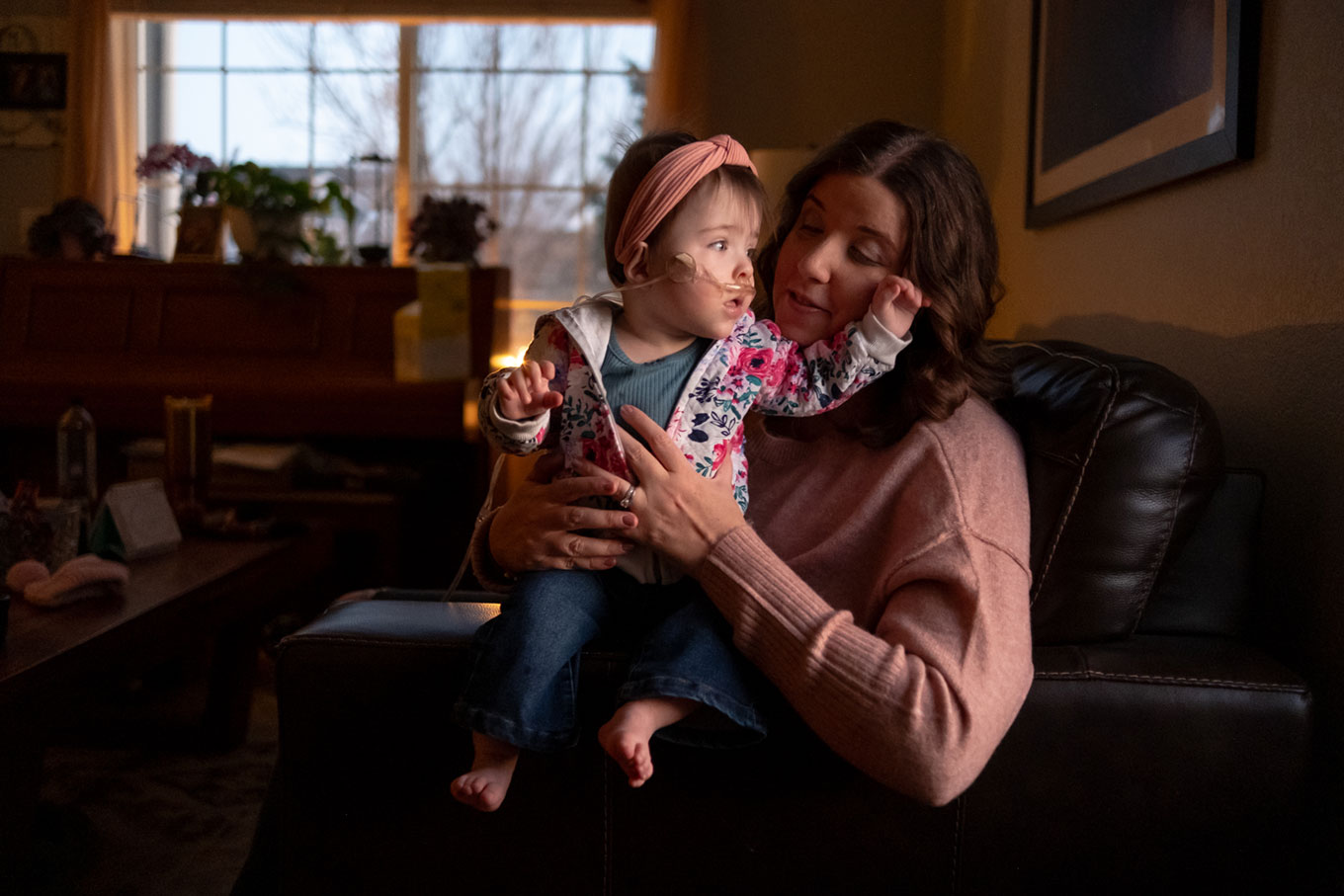Every Monday and Wednesday morning, at a sand-colored storefront along Swink Avenue in Rocky Ford, Colo., coffee is brewed, donuts are laid out, and members of the agriculture-based community are invited inside the double-wide doors. The interior looks like an oversized living room: There are rocking chairs, plants, framed landscape photos, a big-screen TV, and a high-top table surrounded by stools.
Welcome to the Coffee Break Project—a nontraditional support model aimed at combating the mental health crisis in Colorado’s agriculture communities.
“It doesn’t look clinical,” said Joseph Carrica, EdD, vice president and chief healthcare innovation and strategy officer at Valley-Wide Health, the nonprofit health care entity behind the project. And that’s by design.
In an industry and community where discussing mental health issues remains largely stigmatized (as does seeking related care), the Coffee Break Project offers an alternative method for bolstering emotional well-being by simply providing farmers, ranchers and agricultural workers a safe space to support each other. The motto of the Coffee Break Project, which is plastered on the door, sums it up: “Do you look after your neighbors as close as your crop or herd?”
“It’s become a socially acceptable place to hang out and not feel like you’re being judged,” said Carrica. “Because I think people know it’s not a location where counselors are—it’s where conversation is.”
The project, started about four years ago in response to four suicides among men with ties to Kiowa County and its agriculture community, is one of a growing number of initiatives aimed at supporting a population of Coloradans especially prone to mental health challenges, but also unlikely to seek help for their struggles, due to lingering taboo.
More than 195,000 people work in Colorado agriculture across 38,900 farms and ranches; the industry supplies $47 billion to the state’s economy annually, according to the Colorado Department of Agriculture.
Working in agriculture is increasingly stressful. According to an American Farm Bureau Federation (AFBF) survey conducted in December 2021, 60% of people working on farms are experiencing more stress and mental health challenges compared to a year ago.
The AFBF survey revealed stressors impacting this population’s mental health include financial struggles, the state of the farm economy, and weather or other factors beyond a person’s control.
“The bulk of people working in agriculture are really just having a hard time,” said Clinton Wilson, program director of AgWell, an initiative by Rocky Mountain Farmers Union (formerly known as the Rural Peer Assistance Network and funded in part by The Colorado Trust) that supports farmers, ranchers and agriculture workers in Colorado, Wyoming and New Mexico. “It is a crisis.”
Jacob Walter, who grew up on his family’s third-generation cattle ranch in Thatcher, Colo., an unincorporated community between Trinidad and La Junta, has been impacted firsthand by the crisis. In 2016, when Walter was in college, his dad, Rusty, died by suicide.
“One of the last conversations we had was he told me, ‘It’s never so bad that you can’t get help,’” recalled Walter. In Walter’s high school class of 31, two other students lost a parent to suicide.
A number of factors contribute to mental health challenges among agriculture workers. For one, “There’s not very many industries, and not very many occupations you can do in life, where pretty much everything is basically out of your control,” said Walter.
After coping with many years of drought, Colorado farmers and ranchers faced new challenges this past summer thanks to an onslaught of rain and crop-destroying hail storms. Family-owned farms are also up against increased competition from larger, conglomerate-owned farms that are able to produce goods cheaper and faster, said Wilson. Moreover, production costs—including the price of items like fertilizer, crop protection tools and livestock—have recently skyrocketed, jumping 28% since 2020.
Then there’s the perennial fact that for many farmers and ranchers, work-life boundaries are blurred. “You can’t just step away when you have sick animals, or when you have crops in the field that need tending to,” said Walter. “You’re always on call.”
Additionally, when a farm or ranch has been in the family for generations, there can be pressure to continue the legacy, Walter added. On top of that, the nature of the job can be incredibly isolating.
“When you’re working out there, you might not see anybody else all day,” said Walter. “That isolation can really add to the stresses of mental health.”
In 2021, a reported 1,370 Coloradans died by suicide, including 23 in the agriculture, forestry, fishing and hunting industries, according to data from the Colorado Department of Public Health & Environment. That’s the highest annual number for these industries in the state’s database, which dates back to 2004.
Nationwide, the rate of deaths by suicide in rural communities increased 48% from 2000 to 2018, compared to a 34% jump for urban communities, per the Centers for Disease Control and Prevention. In 2018, both the male and female suicide rates were notably higher per capita in rural areas than in urban ones.
But statistics around mental health tell just a fraction of the story. “It’s kind of like the iceberg metaphor,” said Wilson. “The top part of the iceberg is like one-tenth of really what’s going on down below it.”
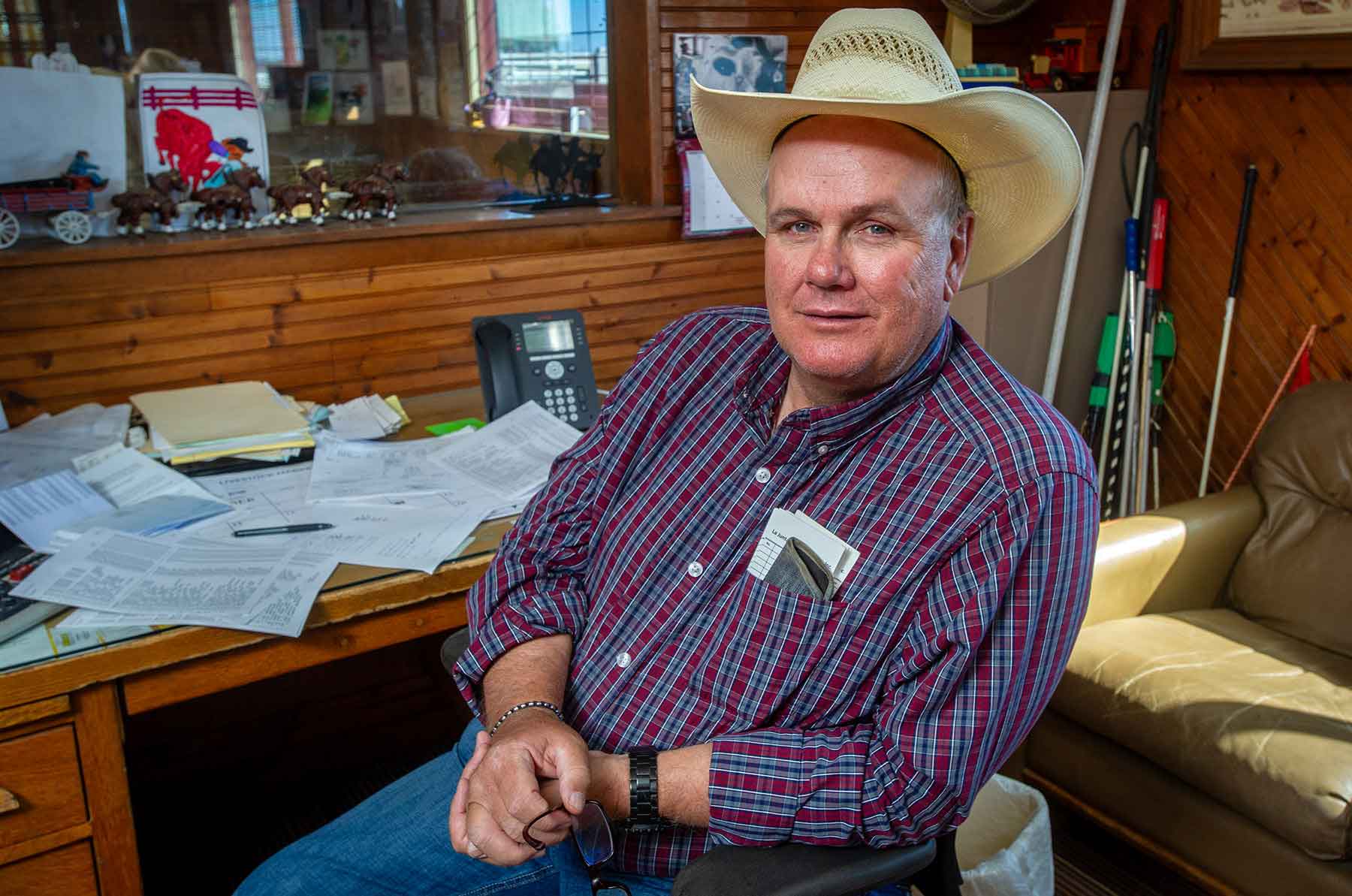
Jace Honey, a farmer, rancher, and president and general manager of the La Junta Livestock Commission, is one of nearly 200 people trained in Changing Our Mental and Emotional Trajectory (COMET), which instructs everyday people on how to intervene when they notice someone in a vulnerable mental state. Photo by Michael Sweeney / Special to The Colorado Trust
In conversations several years ago with farmers and ranchers, Rebecca Edlund, director of operations and membership at the Colorado Farm Bureau, consistently heard that mental health was a pressing issue; that there was a tremendous need for resources; and that behavioral health was cost prohibitive for many. According to a 2022 report by the Colorado Rural Health Center, a nonprofit that serves as the state office of rural health, the 25 Colorado counties with the highest rate of uninsured adults are all classified as rural or frontier. Edlund also learned of specific things that would be needed for an agriculture-focused mental health program to be effective, including anonymity and culturally competent care.
With that insight, she and her colleagues developed the Colorado Agricultural Addiction and Mental Health Program (CAAMHP), which aims to make mental health care more accessible by providing Colorado residents six free counseling sessions with a licensed behavioral health professional. (The Colorado Trust funds CAAMHP.)
The program is built on anonymity; folks need to provide their county of residence to ensure they are Colorado residents, as well as an email address where they can receive the vouchers, “but that data is maintained separately, and we don’t use that for any purpose other than voucher verification,” said Edlund. All participating behavioral health professionals have completed what Edlund calls “cultural humility training” so they have some understanding of farming and ranching life.
To date, more than 30 clinicians have completed the training, and 10 to 15 therapists currently work with CAAMHP. Additionally, over 200 medical professionals—including physicians, nurses, EMTs and hospital administrators—and several pastors have completed a shorter version of the training. Edlund points to a 2019 edition of the AFBF survey that revealed that 78% of farmers and farm workers feel very or somewhat comfortable talking to their primary care physician about mental health issues—but even more (81%) said they’d feel similarly confiding in close friends. For therapists or counselors, the figure was 72%, and 64% for family members.
In its first two years, CAAMHP distributed 186 vouchers for counseling sessions. “I had a member [recently] come up to me and thank me for the work of CAAMHP because in the last two months, he has had three friends die by suicide,” said Edlund.
Walter used the CAAMHP program to access six therapy sessions. “It was just life changing,” he said of the experience, as it allowed him to work through some of the challenges of losing his dad to suicide.
According to Chad Reznicek, a licensed professional counselor and lead behavioral health specialist with the Colorado AgrAbility Project, 21 states, including Colorado, offer free mental health services for folks in the agriculture industry—up from just 10 states two years ago. The Colorado AgrAbility Project is funded, in part, by a grant from the U.S. Department of Agriculture, and provides various types of supportive services to farmers and ranchers.
As a former therapist with a master’s degree in counseling, Wilson believes there is “tremendous value” in folks getting therapy for their mental health struggles. But he also knows that in many cases, if people are provided with opportunities to forge meaningful connections, that may be all they need to bolster their emotional well-being. Plus, due to entrenched stigma, many may still be resistant to the notion of therapy.
“A lot of farmers and ranchers that I know are not going to go to a therapist, even if it was like, the greatest farmer-rancher-turned-therapist in the world,” said Wilson. “There’s no way that they’re at a place yet where they would say, ‘I have this struggle, this is hard, and I need to go talk to a therapist.’”
Per the AFBF survey, 63% of people who work on farms say there is at least some stigma around stress and mental health in the agriculture community, though there are signs that is slowly shifting. Nearly half of farm workers are more comfortable talking to their doctor (44%), close friends (44%) and family members (48%) about their mental health compared to a year prior, the survey found.
In addition to the Coffee Break Project, Valley-Wide hosts regular meetings for a group that discusses soil health topics alongside mental health, as well as advisory committee meetings for veterans and folks in agriculture. They also train locals in a methodology called Changing Our Mental and Emotional Trajectory (COMET). Developed by High Plains Research Network, COMET teaches everyday people how to intervene when they notice someone in a vulnerable mental state.
The program is about “early detection, intervention, and changing a person’s trajectory back to wellness,” said Carrica. To date, Valley-Wide has trained nearly 200 people in the COMET method, said Jennifer Pollmiller, director of marketing and communications at Valley-Wide.
A big aspect of COMET training is simply knowing how to be a sympathetic listener and validate whatever someone’s struggling with, said Hanna Bates, agriculture outreach coordinator for the Coffee Break Project. “Ninety percent of the time, that’s all somebody wants,” she explained.
Informal support systems created by programs like COMET are important given the nationwide shortage of mental health professionals. In Colorado specifically, more than 2.8 million residents live in areas where there is a shortage of mental health care providers, according to Kaiser Family Foundation data.
Finding qualified providers “has been very difficult,” said Carrica. Given the shortage, “I don’t think we have the ability to refer everybody to therapy unless they’re in more of an acute state,” he said. “We need to find additional options for people to connect and work on these stressors and try to divert them from a more clinical setting.” Resources like COMET and the Coffee Break Project aim to fill that gap.
In terms of battling the stigma around mental health care, “each new generation is more receptive and open” to discussing mental health, said Reznicek. “But it does leave that highest-risk population of about [age] 50 and older still in need of developing better awareness and knowing that there’s people available to support them when that need is present.” The average age of Colorado farmers and ranchers is 57.6, according to 2017 data published in the 2022 Colorado Agricultural Statistics Bulletin.
Jace Honey, president and general manager of the La Junta Livestock Commission, who is trained in COMET, doesn’t use the term “mental health” when talking with locals. “I mean, that’s what you’re dealing with. But it’s a stigma or a taboo to talk about,” he said.
Honey, a third-generation owner of the commission as well as a local farmer and rancher himself, was one of the first community members trained in COMET. Folks open up to Honey about their money, relationship, farming or ranching problems. Honey listens, and lets them know he’s always there as a friend. If they need more mental health support, he refers them to Carrica, something he’s done two or three times.
Taking a similar approach, AgWell recently hosted “Coffee Connections” events (based on the Coffee Break Project model) in Routt County, Larimer County, and the Basalt/Carbondale area. They’ve also put on pizza events in Larimer County and Berthoud, as well as an “Apps with AgWell” event in Sterling.
“We had resources at each event so that people could get cards for the CAAMHP program and resources for Colorado Crisis Line,” said Wilson. But the main objective, he added, was to simply provide a sense of community.
In the two years that Reznicek has worked with this population, he’s seen several promising signs of progress, like increased waitlists for therapists—a sign of workforce shortages, but also that folks are trying to access mental health care—as well as invitations to speak at conventions, events and organizations that didn’t previously focus on mental health. Recent grants have helped bolster the state’s support services: During the 2022 legislative session, for instance, the Colorado Department of Agriculture received a $200,000 appropriation for mental health programs.
Bates, for her part, said community acceptance of the Coffee Break Project has “changed dramatically” in the two years she’s been on the job. When people initially learned of her new role, “they were like, ‘we can’t talk to you anymore,’” recalled Bates, who owns a family ranch south of Manzanola with her husband and two daughters. They “basically thought we were going to air out their laundry. And I had to tell them, that’s not what this is about.” Now, anywhere from 6 to 15 people attend the scheduled coffee and donut days, according to Pollmiller.
Still, there’s more work to be done. Looking ahead, Carrica said Valley-Wide aims to expand their presence in the San Luis Valley by building out their peer support program, starting an agriculture advisory group, and implementing COMET training and the Coffee Break Project in the region. And Edlund said CAAMHP plans to introduce Spanish-speaking counselors to reach a wider population.
When asked how hopeful he feels about mental health support in Colorado’s farm country, Carrica took a positive tone.
“Farmers, ranchers, and ag workers are built on hope,” he said. “Hope for rain, hope for better commodity prices, hope for reduction in diesel fuel costs, hope for reduction in fertilizer [prices], hope for more labor, hope for the next generation to take over the centennial farm.
“They’re very hopeful people.”
